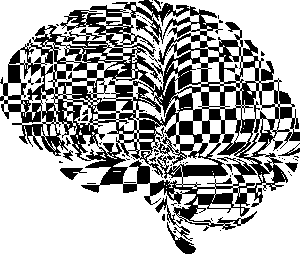Holistic mental health is a balanced approach that integrates physical, emotional, and psychological aspects, focusing on root causes rather than just symptoms. Unlike Western medicine, it uses diverse therapies like meditation, yoga, nutrition counseling, and energy work to empower individuals in their healing process. Integrative holistic therapy personalizes treatments, encourages self-awareness, and fosters resilience, leading to improved mental well-being. Backed by research, these approaches effectively manage conditions like depression, anxiety, stress, and chronic pain, offering natural solutions and reducing stigma. With growing acceptance in mainstream healthcare, holistic mental health is revolutionizing wellness through personalized, inclusive methods enhanced by technology.
“Uncover the transformative power of Integrative Holistic Therapy—a comprehensive approach to mental wellbeing. This article explores the intricate balance between mind, body, and spirit, offering a fresh perspective on mental health care. From understanding the core principles to uncovering evidence-based practices, we delve into how this holistic model benefits individuals seeking mental clarity and resilience. Prepare to explore a revolution in therapy that’s gaining momentum worldwide.”
Understanding Holistic Mental Health: A Comprehensive Approach

Holistic mental health is a comprehensive approach that considers the interconnectedness between an individual’s physical, emotional, and psychological well-being. It recognizes that mental health isn’t just the absence of illness but rather a state of thriving where all aspects of one’s life are in balance. Unlike traditional Western medicine that often focuses on treating symptoms, holistic therapy embraces a more integrated view, addressing the root causes of distress.
This approach aims to facilitate healing and growth by nurturing each person’s unique relationship with themselves and their environment. By incorporating various therapeutic modalities such as meditation, yoga, nutrition counseling, and energy work, holistic mental health practices empower individuals to take an active role in their healing journey. The goal is not just to manage symptoms but to cultivate resilience, promote self-awareness, and achieve a profound sense of well-being.
The Principles of Integrative Holistic Therapy

Integrative holistic therapy is a multifaceted approach that focuses on the interconnectedness of the mind, body, and spirit. Unlike traditional Western medicine’s segmentation of these aspects, holistic mental health considers them as an integrated system where imbalances in one area can affect overall well-being. This therapy emphasizes the individual’s unique relationship with their environment and believes that healing occurs naturally when one addresses the underlying causes of illness or distress.
The principles of integrative holistic therapy involve personalizing treatments to fit each client’s specific needs, promoting self-awareness, and encouraging clients to take an active role in their healing process. Therapists use a variety of techniques including mindfulness, meditation, yoga, nutrition counseling, and energy healing—all aimed at fostering mental, emotional, and physical harmony. By addressing the whole person, this approach aims to achieve lasting improvements in mental health and overall quality of life.
Techniques and Practices: Mind, Body, and Spirit Connection

Holistic therapy emphasizes the interconnectedness of mind, body, and spirit, aiming to treat the individual as a whole rather than focusing solely on specific symptoms. Techniques range from mindfulness practices and meditation to yoga and energy healing. These practices are designed to cultivate awareness, promote relaxation, and balance energetic systems, ultimately supporting mental well-being.
By addressing the mind-body-spirit connection, holistic mental health approaches help individuals uncover and address underlying causes of distress rather than merely managing symptoms. This holistic perspective recognizes that psychological, physical, and spiritual aspects are intricately linked, and their harmonious integration is essential for optimal health and healing.
Benefits for Mental Wellbeing: Balancing the Whole

Holistic mental health approaches, like Integrative Holistic Therapy, offer a transformative path to well-being by addressing the interconnectedness of mind, body, and spirit. This therapy recognizes that mental wellness is not solely a cognitive or emotional state but is deeply influenced by our physical health, life experiences, relationships, and spiritual beliefs. By balancing these aspects, holistic mental health practices foster a sense of harmony and vitality.
The benefits are profound: reduced stress levels, improved mood regulation, enhanced self-awareness, and increased resilience to challenges. This integrated approach encourages individuals to explore and understand their unique mind-body connections, promoting personal growth and a deeper sense of calm. It empowers people to take charge of their mental health in a comprehensive way, leading to lasting improvements in overall well-being.
Tailoring Treatments: Individualized Care in Holistic Practice

In the realm of holistic mental health, tailoring treatments is an art that sets integrative holistic therapy apart. Every individual’s journey with their mental well-being is unique, and a truly holistic practice recognizes this diversity. Holistic therapists embrace the complexity of human experience, understanding that one-size-fits-all approaches rarely lead to lasting results. By assessing each client’s physical, emotional, and spiritual aspects, practitioners design personalized care plans.
This individualized approach encompasses a wide range of therapeutic modalities. It may include various techniques such as mindfulness practices, nutrition counseling, energy healing, or creative arts therapy, all woven together in a way that resonates with the client. The goal is to empower individuals to take ownership of their mental health, fostering a deep sense of connection and wholeness. Through this tailored care, holistic therapy offers a transformative experience, addressing the root causes of distress and promoting long-lasting resilience.
Evidence-Based Research: Supporting Holistic Mental Health

Holistic mental health approaches, including integrative therapies, have gained significant traction in recent years due to a growing body of evidence-based research. These studies highlight the effectiveness of treatments that consider the interconnectedness between a person’s physical, emotional, and spiritual well-being. By addressing all aspects of an individual’s life, holistic therapy offers a comprehensive solution for managing mental health conditions.
Research has shown that integrative holistic therapy can lead to improved symptoms, increased coping mechanisms, and enhanced overall quality of life. Techniques such as mindfulness, meditation, yoga, and nutrition therapy have been rigorously studied and found to be beneficial in treating depression, anxiety, stress, and even chronic pain. These natural, non-invasive methods provide individuals with tools to take control of their mental health and promote long-lasting well-being.
Overcoming Stigma: Embracing a Holistic Perspective

Overcoming stigma is a crucial aspect of promoting holistic mental health. Society’s historical tendency to separate mind and body has led to a fragmented approach to well-being, often stigmatizing alternative healing methods. However, embracing a holistic perspective challenges this divide, recognizing that mental and physical health are intricately linked. By understanding the interconnectedness of these aspects, individuals can begin to view holistic therapy as a valid and empowering option for improving their overall wellness.
This shift in perspective is essential in encouraging people to explore integrative approaches without fear of judgment. Holistic mental health practices, such as acupuncture, meditation, and natural remedies, have gained support from both the medical and therapeutic communities due to their proven benefits in treating various conditions. Overcoming stigma associated with these practices paves the way for a more inclusive and comprehensive understanding of healing, ultimately enhancing access to effective treatment options.
Integrative Therapy in Modern Healthcare Systems

In modern healthcare systems, there’s a growing recognition of the importance of holistic mental health approaches, giving rise to the integration of various therapeutic modalities. Integrative holistic therapy combines conventional medical treatments with alternative and complementary practices, focusing on the interconnectedness of mind, body, and spirit. This approach addresses not just symptoms but also the underlying causes of psychological distress.
By incorporating techniques like mindfulness, meditation, yoga, nutrition counseling, energy healing, and traditional talk therapies, integrative holistic therapy offers a more comprehensive and personalized treatment plan. Such an inclusive method benefits patients by fostering resilience, promoting self-care, and encouraging a deeper understanding of their mental well-being.
The Future of Holistic Mental Health Care

The future of holistic mental health care looks promising as there is a growing recognition of the importance of addressing the mind-body connection. Integrative holistic therapy, which combines conventional medical treatments with alternative and complementary practices, is gaining traction. This approach not only targets symptoms but also aims to heal the underlying causes of mental health issues by considering an individual’s physical, emotional, spiritual, and environmental well-being.
With advancements in technology and research, holistic mental health care is becoming more accessible and personalized. Virtual reality therapy, mindfulness-based interventions, and tele-mental health services are expanding the reach of treatment, making it convenient for many. As society becomes more open to alternative healing methods, the integration of holistic practices into mainstream mental health care is likely to continue growing, offering a comprehensive and nurturing approach to well-being.
